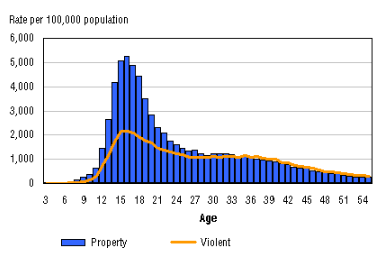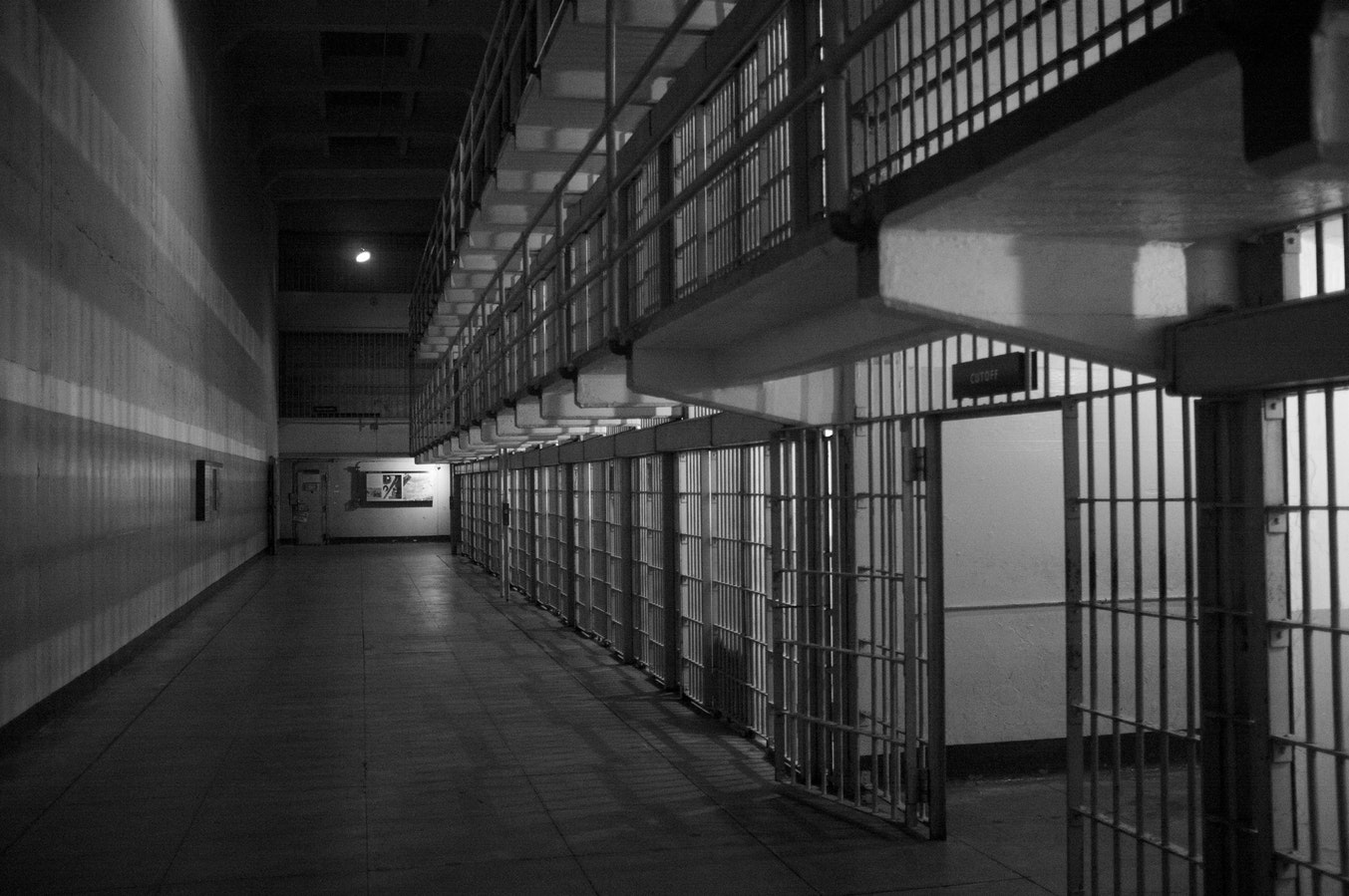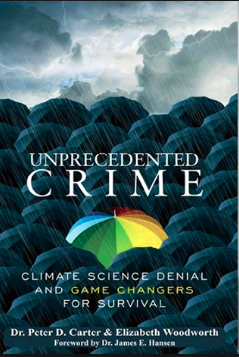*The crime rate in the U.S. has been going down since 1993. There are several explanations for the decline in crime, some of my favorites being that cell phones and the internet have lowered the crime rate. The folks that suggest that crime is going down have their favorite theories, and tend to insist that crime has gone down because of whatever cause for which they are currently stumping. I would like to consider a few reasons other than cell phones and the internet.
In a more expansive viewpoint, I would suggest that there are several factors that have caused the crime rate of the U.S. to decline. Of course, Chicago and several other cities have yet to witness any decline in crime, so obviously the decline has not touched those places; nonetheless, crime in the U.S. has declined since 1994. Every announcement of the continuing crime wave sweeping over Chicago is met with deep disdain and helplessness, as the futile efforts of the authorities seem unable to lessen the out-of-control violent crime, even for a county with some very strict firearm regulations.

Image Credit: Chicago Tribune
That’s the thing about criminals; gun laws mean very little to them, since they have important crimes to commit with said guns. I genuinely feel quite sad for the citizens of any city where crime runs so rampant that reporting crime is a waste of time and dozens of innocent lives are shortened by criminals. That said, let’s look at a few things.
The U.S. has, by far, the highest incarceration rate in the world, followed closely by Russia. Could it be, that many of the inmates in the U.S. criminal justice system would be out committing crimes were they not doing three hots and a cot courtesy of the government? It turns out that almost half of the states have “three strikes” laws, where your third felony conviction gets you fifteen or even as many as twenty-five years to life behind bars. I agree that the crimes, especially the third strike, must be a serious or violent felony for the three strikes extended sentencing to be applied. Being incarcerated for twenty-five to life for stealing videotapes worth one-hundred fifty dollars on a third strike is constitutionally not in violation of the Eighth Amendment, as decided by the U.S. Supreme Court, in a remarkably federalist move, which allowed the twenty-five to life sentences for stealing small amounts to stand. See (Lockyer v. Andrade, 538 U.S. 63 (2003). The Lockyer v. Andrade case was in California, and the three strike law of Texas has been similarly challenged, each time ruled constitutional by the Supreme Court. The Supreme Court isn’t going to tell the states how they can punish repeat offenders.

Could it be that our distended prison population has made the U.S. safer and contributed to the decline in crime? I would take the position that incarcerated citizens are physically restrained from committing crimes against citizens; if there is an exception to that, please feel free to disabuse me of that notion.
Another factor, it would seem, is the aging of the U.S. population. According to one study, most citizens commit crimes when they are under the age of twenty-five. As the U.S. population ages, the propensity to commit crimes becomes less. One of the more important issues is the aging prison population, with the prisoners facing all of the ailments of older people and the prisons would be much happier with a population of young, healthy criminals. Old criminals have many more health issues to be addressed. The aging population is less inclined to commit crimes, another reason for the crime decline.
Could it be that our distended prison population has made the U.S. safer and contributed to the decline in crime?
Technology is certainly a player in the decline of crime. More banks, retail establishments and households are using cameras that record crimes, making it harder to rob or burglarize them. Fewer and fewer citizens are carrying cash, as well. While stealing credit cards is still a popular crime, they are easily traceable and instantly cancelable. Stealing credit cards also leaves a trail that is easily traceable, resulting in more arrests and convictions.

The internet is certainly the new Wild West. Technology has moved faster than the law has the speed to keep up with it. You can certainly ask Ross William Ulbricht, founder of the Silk Road, about all of the crime that the internet has made possible. Ulbricht, barring any appeals from some very skilled attorneys, will be spending the rest of his life in the custody of the Federal Bureau of Prisons, (BOP) currently at the United States Penitentiary, Tucson, Arizona, a high security prison. Criminals, like so many other elements of U.S. society, have gone high-tech. Now days you don’t walk into a bank with a gun, you simply (I realize it isn’t that simple) hack into the bank’s computers and steal the money.
One point to bring out that some people might not know: many banks whose computers are hacked into are reluctant to publicize those losses, as they fear depositors might become frightened and withdraw their money, so the bank won’t tell you if they were robbed by a hacker.

I would agree that acquiring drugs via cell phones and the internet have lowered certain crimes, but to suggest that technology accounts for the crime decline is an oversimplification of a far more complex situation. Just to make all of you readers feel better, according to the Bureau of Justice Statistics, (BJS, via Pew Research) it appears that many people feel reporting crime is a waste of time. “In 2017, only 45% of violent crimes tracked by BJS were reported to police. And in the much more common category of property crime, only about a third (36%) were reported. There are a variety of reasons crime might not be reported, including a feeling that police “would not or could not do anything to help” or that the crime is “a personal issue or too trivial to report,” according to BJS.” Not encouraging news, and I would suggest you draw your own conclusions about such behavior by the victims of crime. Apparently, reporting crime is pointless to a significant number of crime victims.
Education tends to be important, as you won’t find a great number of college-educated citizens in most of the prisons, though there are always the exceptions. A strong economy tends to lessen crime, or to put it another way: “Those who are destitute cannot afford the luxury of morality.” “Rich men as well as poor men are forbidden to steal bread and sleep under bridges, but we all know who does it.” A good economy with lots of jobs tends to lessen crime. Many of the urban areas where crime is rampant are also devoid of jobs, where the citizens can’t find work, so they resort to crime. As for violent crime and interspecific stress, we know that packing any species close together tends to encourage more conflict.
There are many contributing factors to the decline in crime in the U.S. An aging population, technology, employment opportunities, and the fact that a lot of our citizens are locked up would seem to significantly influence the decline in crime. Let’s hope that the decline in crime continues. I do not think, however, that more cell phones will cause even more decline in crime, nor are they responsible for the substantial reduction in crime; if anything, they have just made crime more convenient. Crime was declining before millions of cell phones changed the U.S. society.
Sources, for those who wonder where the facts came from.
https://www.pewresearch.org/fact-tank/2019/01/03/5-facts-about-crime-in-the-u-s/
https://www.criminaldefenselawyer.com/resources/three-strikes-law.htm
https://www.sagepub.com/sites/default/files/upm-binaries/60294_Chapter_23.pdf

Jeffrey Neil Jackson is an
Educator & Literary Mercenary
America’s Prison Population America’s Prison Population America’s Prison Population America’s Prison Population










